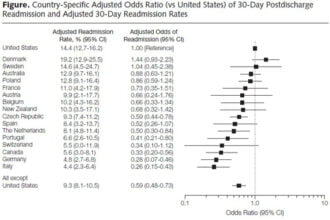The little-known American Medical Association committee that recommends physician pay scales to Medicare’s fee-for-service program today asked the agency to reimburse physicians for coordinating care for their chronically-ill patients. In a letter to administrator Donald Berwick, the Relative Value Scale Update Committee (better known as the RUC) recommended the Center for Medicare and Medicaid Services pay for phone calls, counseling sessions and other services that help their patients wend their way through the complicated health care system.
The little-known American Medical Association committee that recommends physician pay scales to Medicare’s fee-for-service program today asked the agency to reimburse physicians for coordinating care for their chronically-ill patients. In a letter to administrator Donald Berwick, the Relative Value Scale Update Committee (better known as the RUC) recommended the Center for Medicare and Medicaid Services pay for phone calls, counseling sessions and other services that help their patients wend their way through the complicated health care system.
Good idea, and long overdue. But what I didn’t see in the letter from RUC committee chairwoman Barbara Levy was any reference for how to pay for these new services. How about a reduction in the “relative value” of back surgery or conducting angioplasty on patients complaining of persistent chest pains? These are among the most expensive and overused procedures in medicine, incentivized by the extraordinarily high fees earned by the surgeons who do them. These surgeons often earn two or three times what primary care physicians earn.
Perhaps it’s time for Medicare to adopt the same rule that Congress uses when passing legislation. Any new spending on physician pay must be offset by cuts elsewhere in the Medicare budget. It’s called the “pay-for” rule. President Obama’s “millionaire” tax is his answer to how to pay for the $487 billion jobs package. Republicans on the Hill tried to tag emergency relief to flood victims in the Northeast with a pay-for, something that Congress has never done before when American people are suffering from natural disasters.
A physician “pay-for” rule could become part of the permanent “doc fix” that the AMA is seeking before the end of this year. Congress needs to come up with nearly $300 billion over the next decade simply to hold physician salaries where they are. The permanent fix would set a cap for total physician pay; and allow it to rise over time for inflation. But why not require that CMS adjust payments to the various specialties to meet that cap? Otherwise, in a few years we’ll be right back where we are today: a permanent fix that wasn’t permanent at all, with new services inflating the total tab beyond the cap.
A hard cap with a pay-for rule will give the RUC a real job. Instead of being a body that calls for steadily increasing fees for every specialty, it will have to take up the hard task of fairly divvying up a constrained physician salary pie.







